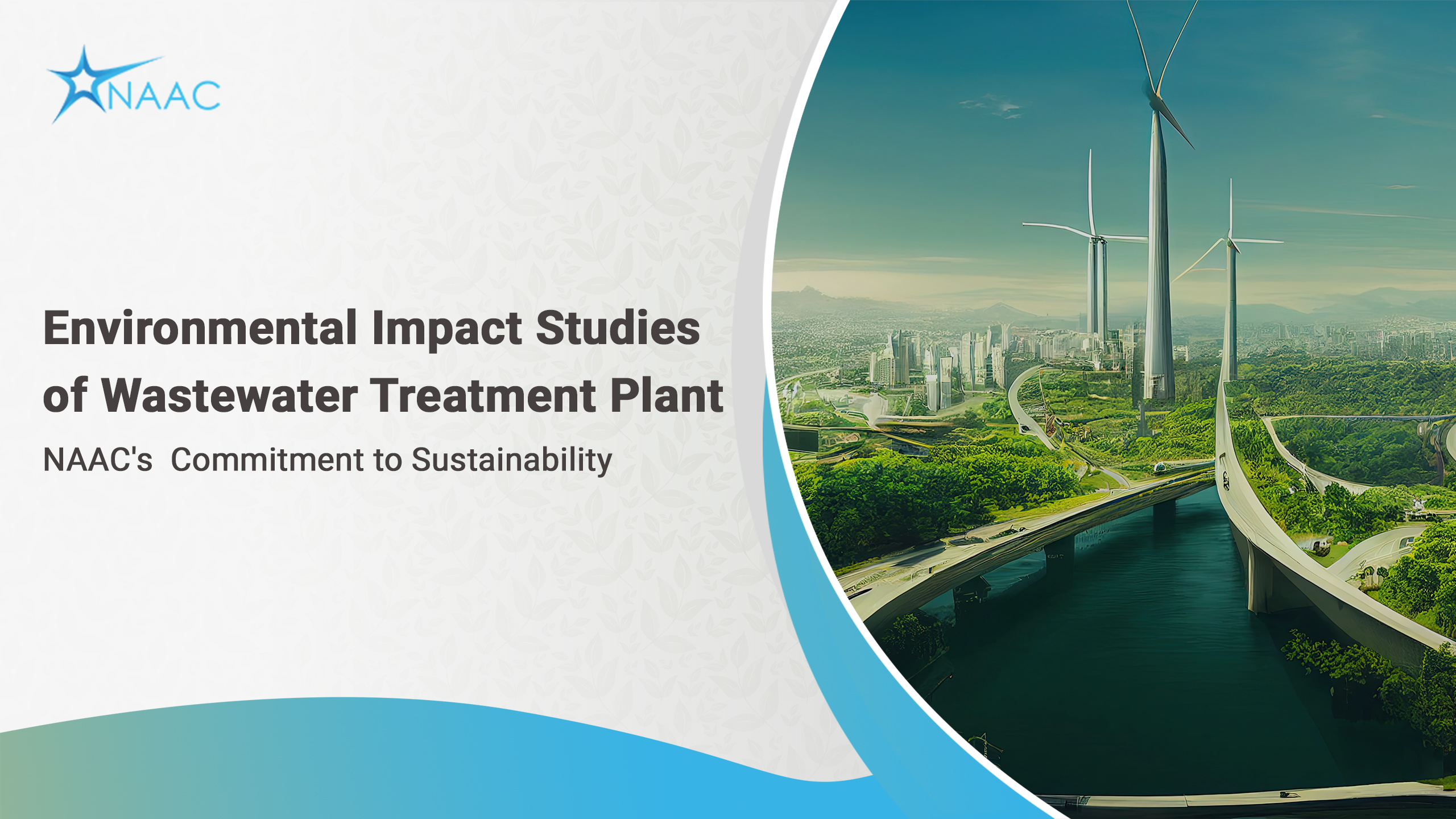Environmental Impact Studies of a Wastewater Treatment Plant NAAC's Commitment to Sustainability

Environmental Impact Studies (EIS) are crucial assessments conducted before constructing and operating a wastewater treatment plant. These studies evaluate the potential environmental consequences of the plant on various aspects, including:
- Air quality: Emissions from the plant, such as odors and volatile organic compounds (VOCs), can impact air quality in the surrounding area.
- Water quality: The treated wastewater effluent discharged from the plant can affect the quality of receiving water bodies, such as rivers, lakes, and oceans.
- Soil and groundwater: Improper wastewater treatment can lead to contamination of soil and groundwater with pollutants, impacting plant and animal life.
- Noise pollution: The operation of the plant can generate noise that may disturb nearby residents and wildlife.
- Biodiversity: The construction and operation of the plant can disrupt local ecosystems and habitats.
By conducting thorough EIS, NAAC can identify and mitigate potential environmental impacts, ensuring that our wastewater treatment plants operate responsibly and sustainably.
NAAC's Sustainable Wastewater Treatment Practices
NAAC is committed to minimizing the environmental impact of our wastewater treatment plants. We implement various sustainable practices, including:
- Energy-efficient technologies: We use energy-efficient equipment and processes to reduce our energy consumption and carbon footprint.
- Renewable energy sources: We explore the use of renewable energy sources, such as solar and wind power, to power our plants.
- Water reuse: We treat wastewater to a high standard, allowing it to be reused for irrigation, industrial purposes, or other non-potable applications.
- Sludge management: We responsibly manage sludge generated during the treatment process, minimizing its environmental impact.
- Community engagement: We engage with local communities to raise awareness about the importance of wastewater treatment and sustainable practices.
By adopting these sustainable practices, NAAC helps protect the environment and ensure the long-term health and well-being of our communities.
Conclusion
NAAC recognizes the importance of environmental responsibility and is committed to operating wastewater treatment plants that are sustainable and minimize environmental impact. Through comprehensive Environmental Impact Studies and sustainable practices, NAAC is working to ensure a clean and healthy environment for future generations.
